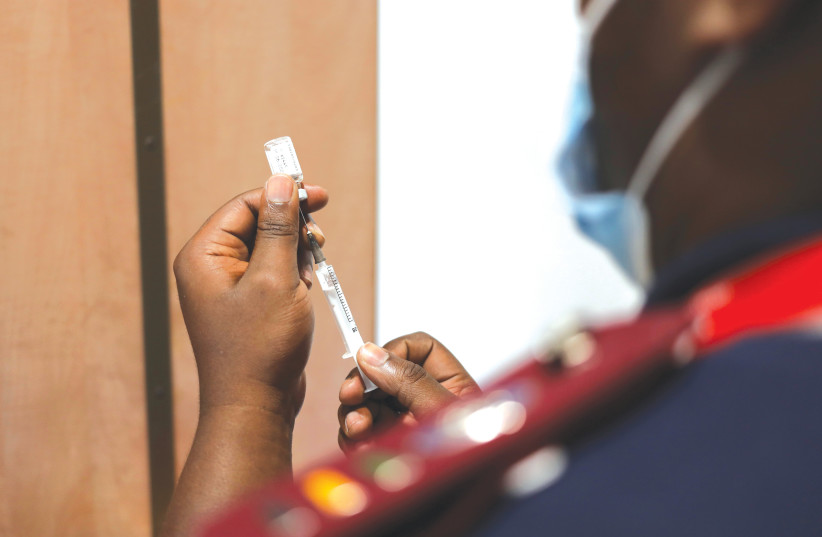There is a lower risk of hospitalization for people with the Omicron coronavirus variant compared to Delta, but the higher transmissibility of Omicron could still lead to significant numbers needing hospital treatment, the UK government said.
Analysis of preliminary data by the UK Health Security Agency (UKHSA) showed an individual with Omicron was estimated to be between 31% and 45% less likely to attend hospital compared to someone with Delta, and 50 to 70% less likely to be admitted.
UKHSA Chief Executive Jenny Harries said on Thursday it was "an encouraging early signal that people who contract the Omicron variant may be at a relatively lower risk of hospitalization than those who contract other variants."
"However, it should be noted both that this is early data and more research is required to confirm these findings," she said.
The findings add to early evidence about the severity of disease that the new variant, first identified in southern Africa and Hong Kong, can cause and are consistent with encouraging signs from studies from Imperial College London and the University of Edinburgh on Wednesday.

Data looking at the effects on the older population is still needed though.
Transmissiblity, severity of disease and whether Omicron evades vaccines are the three big questions public health authorities and virologists are trying to answer as they assess whether they need to take unpopular, economically damaging steps to tame the latest wave of infections.
The agency said evidence showed protection against symptomatic disease waned after the second dose of a COVID-19 vaccine, and then improved after the booster.
But the data suggested the extra protection started to wane more rapidly against Omicron than Delta, being about 15-25% lower from 10 weeks after the booster dose, it said.
